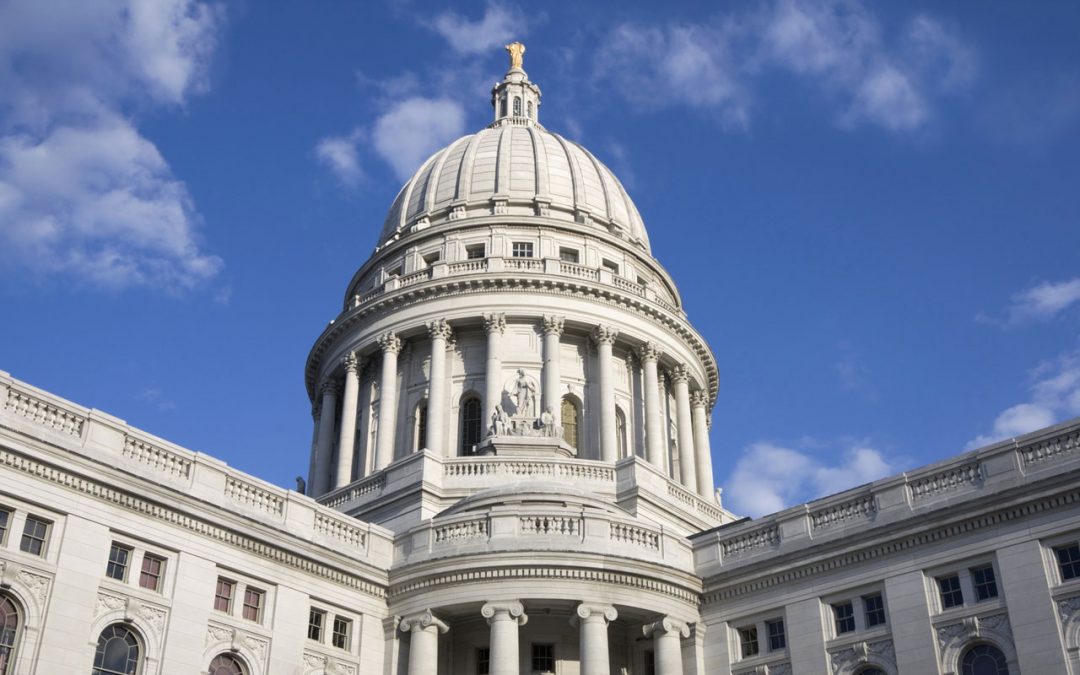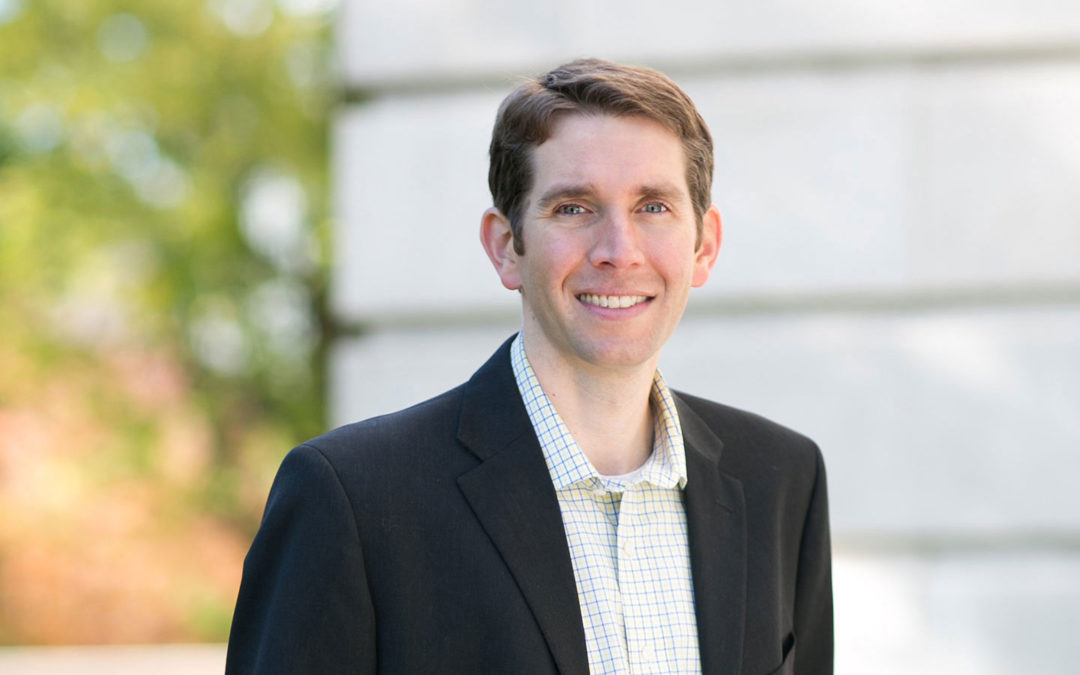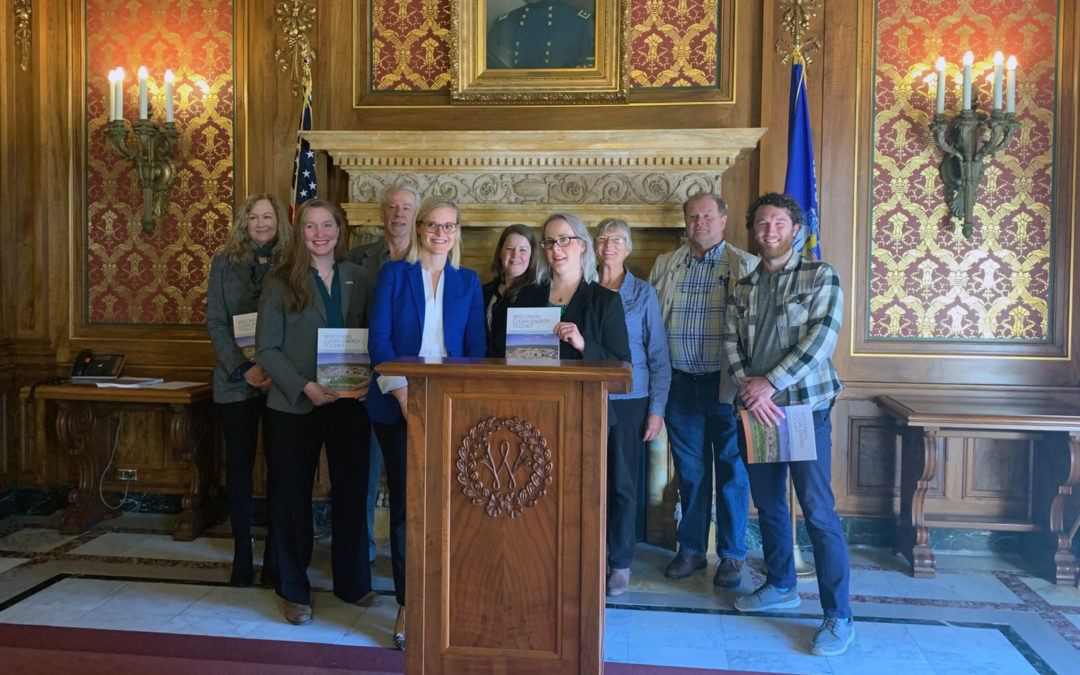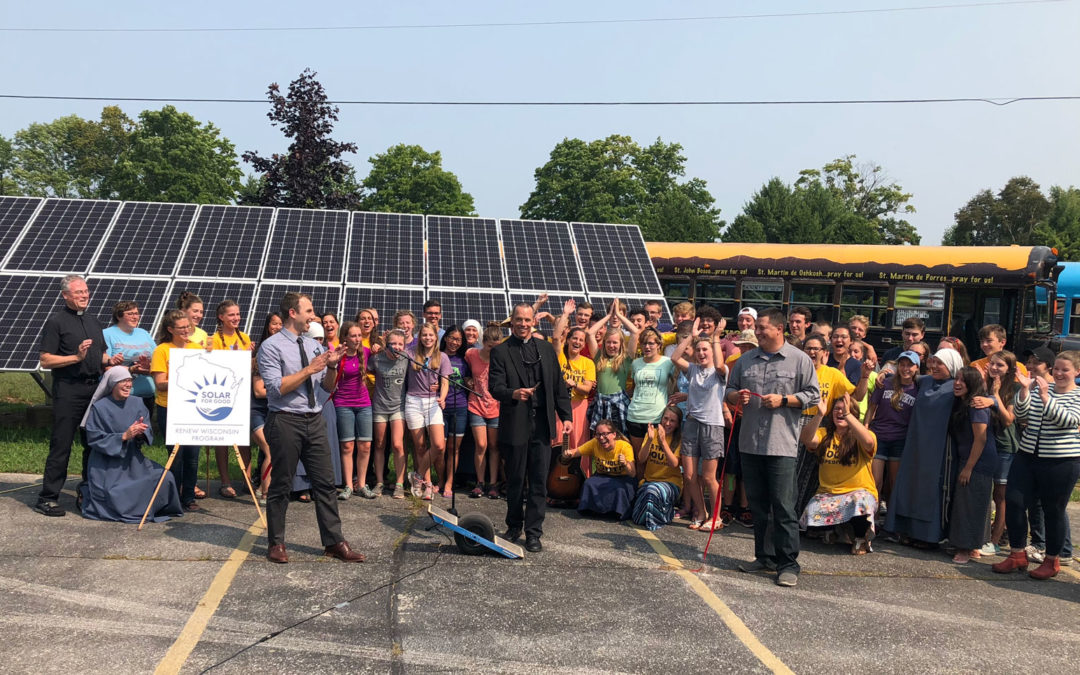
RENEW Wisconsin Legislative Update
Questions?
Contact Jim Boullion, RENEW’s Director of Government Affairs
jim@renewwisconsin.org
Office: (608) 255-4044 – ext 4 • Cell: (608) 695-7004
______________
03.24.2020 • Governor Evers Retains Exemption for Construction from Mass Gathering Restrictions in his Safer at Home order. If a business is unsure about whether or not they are exempted from this order, please contact the Wisconsin Economic Development Corporation here.
______________
03.23.2020 • Construction exempted from mass gathering restrictions – For now…
Gov. Tony Evers’ administration has issued Emergency Order #8, which clarifies that construction operations on private and public projects are exempt from previous orders related to bans on mass gatherings in response to the COVID-19 pandemic.
Effective at 5 p.m. on March 17, all public and private mass gatherings of more than 10 people in Wisconsin were prohibited in an attempt to slow the spread of COVID-19 with certain exceptions. On Friday, March 20, an exemption was extended to “Construction sites and projects, including public works and remodeling projects,” according to the new emergency order. The order, signed by Health Services Secretary-designee Andrea Palm, remains in effect for the duration of the public health emergency declared by Gov. Evers or until a superseding order is issued.
However, keep an eye on the Governor’s actions in the next few days. In a series of tweets today (Monday) Governor Evers said to expect an expanded Emergency Oder called “Safer at Home”. You can see the Tweets here: https://twitter.com/GovEvers/status/1242097513785479169
______________
03.23.2020 • WEDC is providing up to $5 million in grants to small businesses in the state to help offset losses related to coronavirus response measures.
Gov. Tony Evers has issued a public health emergency in response to the coronavirus outbreak, banning gatherings of more than 10 people and ordering bars and restaurants to close to in-house patrons. Retailers are also expected to take a hit as consumers stay home to prevent further community spread of the virus.
To address some of the economic impact, WEDC has developed a $5 million grant program for small businesses. Individual grants are capped at $20,000 and reserved for companies with 20 employees or fewer that have borrowed from one of the state’s 23 community development financial institutions. The funds will go toward rent and payroll expenses including paid leave for workers. Companies that hope to receive grants will have to apply through participating CDFIs, and WEDC plans to announce results in the next few weeks.
CDFIs include credit unions and community development banks, as well as nonprofit loan funds and venture capital funds. Grant applications will be handled by the CDFIs rather than WEDC.
The Small Business 20/20 program was approved Tuesday by the agency’s board of directors. According to WEDC spokesman David Callender, at least 250 businesses will receive grant funding. “Based on our board’s discussions yesterday, some of the small businesses are estimating losses below $20,000, so that would mean the number of participants could be higher,” he said in an email.
WEDC Secretary and CEO Missy Hughes noted many of these “smallest of the small” companies don’t have sufficient reserves to survive prolonged revenue losses. “I know that is not satisfactory to a lot of businesses around the state; I know it’s a drop in the bucket,” she said. “Hopefully as we see it working, we can start to expand it as more resources become available.”
CDFIs with a minimum portfolio size of at least $4 million are being encouraged to participate in the grant program. But smaller ones can also apply jointly if they have a combined portfolio size of at least $4 million.
See the release:
https://wedc.org/blog/wedc-announces-targeted-grants-to-small-businesses-suffering-losses-due-to-coronavirus-emergency/
See more program info:
https://wedc.org/programs-and-resources/small-business-2020/
______________
03.23.2020 • Gov. Tony Evers is requesting loan assistance from the U.S. Small Business Association for Wisconsin companies impacted by the coronavirus fallout.
In a letter to SBA leadership, Evers noted lower consumer activity, sweeping event cancellations, mandatory closures of bars, and restrictions on other restaurants are causing direct economic harm to companies. He noted the hospitality, event hosting, and small retail business sectors are struggling the most during the outbreak.
He specifically identified: Kobussen Buses, which has corporate offices in Kaukauna; Country Kitchen Cafe in Dodgeville; Common Man Tap & Table, based in Ellsworth; Kugels Cheese Mart in Lena; and Earth Rider Brewery in Superior.
According to a federal website, the SBA’s Economic Injury Disaster Loans program provides up to $2 million in financial assistance to recipients, depending on how badly the company has been affected. They’re often long-term loans with low interest levels.
WEDC chief Missy Hughes says she expects the SBA to have loan applications available for Wisconsin businesses in the next two days or so. She explained the loans are restricted to businesses with 500 employees or fewer. “We expect the SBA to be inundated with applications,” she said during a conference call today. “This is a nationwide issue. We are working with the SBA to think about what resources are available in Wisconsin, things that have already been in place.”
See the letter:
https://www.wisbusiness.com/wp-content/uploads/2020/03/2020_03_18-SBA-Request.pdf
______________
03.23.2020 • State Senate Delayed, Workforce Training Grants for Solar and Wind (AB 237) at Risk
AB 237, which would dedicate up to $1 million in training for wind and solar workers from the Department of Workforce Development ‘s First Forward Program, passed the State Assembly in February and was sent to the State Senate for final approval. A public hearing on SB 218, the companion to AB 237, was held on January 22 and was supported by utilities and numerous other groups with no one registered in opposition. The bill passed in the Senate Committee on Economic Development, Commerce and Trade on a 5-0 vote, but still needs to be voted on by the full senate.
The Senate was expected to hold its final regular floor session of the year from March 24 to 26 to vote on this and other measures, but due to the Coronavirus crisis the Senate has delayed coming back into session. The Senate will monitor the public health situation and will likely call themselves back to vote on the issues remaining from this floor period or on emergency measures related to the COVID-19 crisis when they feel it is safe to gather at the Capitol or via electronic voting if necessary.
While the bill has had good momentum and support in both houses of the legislature it appears that a small number of Senators are opposed to the bill and may be able to prevent it from passing. Contact your State Senator and ask them to support passage of AB 237, without further amendment, before the end of the 2020 legislative floor session!
Also, a reminder that the DWD has released a new round of funding for the current Fast Forward training grant program. Applications must be submitted by March 31st. The DWD is very interested in having the renewable energy industry apply for those grants this year. See my note below for more information.
______________
03.23.2020 • Wisconsin Fast Forward Training Grant Applications Postponed Until April 30
From: DWD MB Wisconsin Fast Forward <WisconsinFastForward@dwd.wisconsin.gov>
Subject: Wisconsin Fast Forward APPLICATION DEADLINES EXTENDED to April 30, 2020
Date: March 20, 2020 at 4:47:08 PM CDT
Reply-To: WisconsinFastForward@dwd.wisconsin.gov
Good afternoon:
The Department of Workforce Development’s Office of Skills Development (OSD) announces that Wisconsin Fast Forward APPLICATION DEADLINES are EXTENDED to April 30, 2020 for “Industry Sectors Worker Training Grants” and “Technical Education Equipment Grants.”
All other application submission requirements remain unchanged.
For more information and to apply to either grant program, please see the Grant Program Announcements summarizing program application requirements at http://wisconsinfastforward.com/wff_standard.htm
New Round of Fast Forward Workforce Training Grants Released
On a very related note, the DWD announced on Friday (see below) that they have $4 million of new Wisconsin Fast Forward (WFF) worker training grants that are available for all industries, including the solar and wind industries, to provide training for their workforces. This is the same program that our legislation mentioned above would utilize.
The DWD has a fast turn-around on this grant application cycle, so anyone interested should look into it soon. Applications must be submitted by March 31st, grantee’s will be selected on April 23rd and Contracts awarded on April 30th. Please take a look at the Industry Sector Grant Program outline for all of the details.
The WFF website has additional information and webinars on how to participate in the program on your own. Also, please let me know If you are interested in applying for the grant program. I will use that information to work with the DWD administrators, the MREA, technical schools and other potential partners about the best way for us to work together to be able to utilize the grants.
…………………………..
From: WisconsinFastForward@dwd.wisconsin.gov
Subject: Wisconsin Fast Forward Program Now Accepting Applications
Date: February 14, 2020 at 5:44:35 PM CST
To: jim@renewwisconsin.org
Reply-To: WisconsinFastForward@dwd.wisconsin.gov
Thank you for your continued interest in the Wisconsin Fast Forward (WFF) grant program. The Department of Workforce Development’s Office of Skills Development (OSD) is again accepting applications!
We have redesigned our grant offerings into a single grant opportunity, “Industry Sectors Worker Training Grants.” This grant program is designed to help fund development of innovative and collaborative customized worker training programs.
Key features of this grant program are:
- Grants are available to all industry sectors and to any size of company;
- Grant award amounts may range from $5,000 to $400,000;
- Cash or in-kind match equal to 50% of the grant award amount is required;
- Grantee must complete training of at least 85% of the contracted number of trainees; and
- At least 65% of trainees must be placed in positions at the placement partner(s) identified in the grant application that require the skills learned in the provided training.
For more information and to apply, please see the Grant Program Announcement summarizing program requirements.



